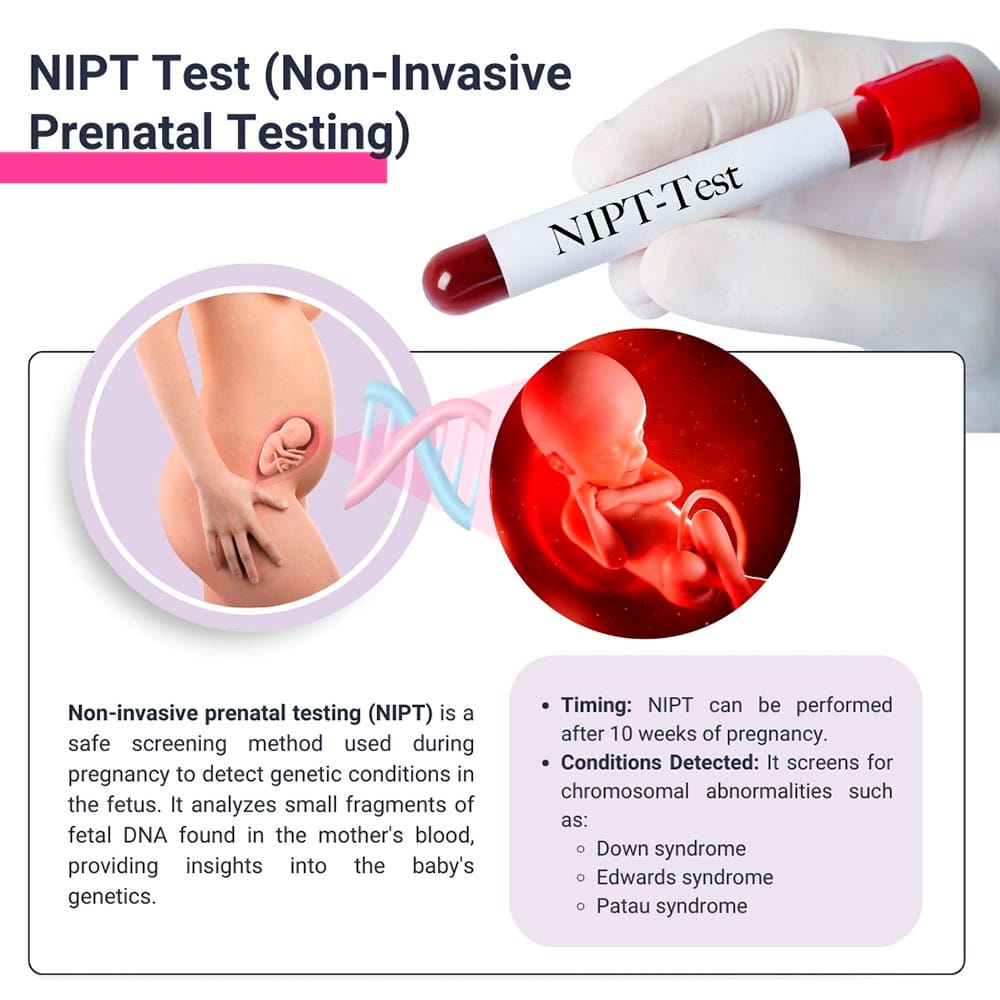What Is Non-Invasive Prenatal Testing?
Non-invasive prenatal testing (NIPT) is a screening tool used during pregnancy to catch any genetic conditions in the developing baby. It analyzes small fragments of the fetus’s DNA circulating in the mother’s blood, which gives insight into the baby’s genetics. It’s a safe procedure that causes no risk to pregnancy and is done anytime after ten weeks.
It’s used to detect chromosomal conditions, such as:
- Down syndrome
- Edwards syndrome
- Patau syndrome
If your previous ultrasound shows abnormality in the fetus, then you should consider getting an NIPT to detect issues as early as possible.
One of the most reliable physicians in NYC is Dr. Felix Cohen, director of Cohen Medical Practice (CMP) offering a full range of fertility services, including:
- Pregnancy planning and testing
- Artificial insemination
- Genetic screening
- Anti-müllerian hormone (AMH) tests
- Semen analysis

How Is NIPT Different from Prenatal Genetic Testing?
Both NIPT and prenatal genetic testing are used to assess the genetic health of the fetus during pregnancy, but both differ in various sections. Genetic tests are invasive procedures to diagnose genetic disorders. They are done when there’s a high-risk of genetic abnormality.
Important points to consider include:
- Genetic testing carries the risk of miscarriage or infection.
- Some genetic tests are performed between 15-20 weeks of pregnancy.
- Genetic testing is invasive.
NIPT is safer than genetic testing due to its non-invasive nature and provides parents with more time to consider options or medical interventions. NIPT has a high level of accuracy for detecting chromosomal abnormalities and detects gender as well.
NIPT is widely used; research shows that about 70 percent of women opt for this test, and regardless of age or risk factors, the American College of Obstetricians and Gynecologists expanded its recommendations to ask all pregnant women to get this test. Your NYC physician at CMP has extensive experience that helps him manage and interpret the results of NIPT easily.
How Is Non-Invasive Prenatal Testing Performed?
After you’ve confirmed your pregnancy, your doctor may recommend an NIPT for prenatal genetic screening. Your physician then schedules an initial meeting with you to talk about the process, purpose and outcomes.
The steps of an NIPT include:
- At ten weeks of pregnancy or later, a blood sample is taken from the mother’s arm; this process is called the NIPT blood test.
- The blood is then sent to the lab, where they isolate the fetal DNA for analysis.
- Within one to two weeks, you hear from your physician to talk about the results.
The results don’t say that your baby has a condition; it only assesses risks. Mostly, labs provide results separately for each of the conditions they were screening for, which means you might get a positive-risk result for one condition and a negative-risk result for another. Sometimes, due to not enough fetal DNA, identification is difficult, and the NIPT must be repeated.
Why Is Non-Invasive Prenatal Testing Not Suitable for Me?
Your physician might discourage an NIPT if the effectiveness of the results may be compromised. In cases where the pregnancy is less than ten weeks, you might not achieve the best results, so the doctor avoids NIPT.
Other conditions that may affect the outcome include:
- Medical conditions like cancers or autoimmune disorders
- If you’re not concerned about genetic disorders
- If you have any placental conditions or obesity is an issue
Sometimes, your partner may be a known carrier of a genetic condition, in which case getting an NIPT is a good option for you and the fetus. If you’re 35 years or older or have any family history of genetic disorders, you might need an NIPT.
Your physician may recommend you get this test if you have issues such as:
- Abnormal ultrasound finding in first trimester
- Previous pregnancy with abnormalities
- Multiple pregnancies
How Accurate Is Non-Invasive Prenatal Testing?
The accuracy of this test varies depending on the condition you’re screening it for. Mostly, NIPT is used to detect Down syndrome that’s caused by an extra 21 chromosome, an extra 18 chromosome, or an extra or missing copy of the X and Y chromosome, also known as the sex chromosome.
Common types of NIPT include:
- Expanded NIPT panels
- Single gene testing
- High-risk NIPT
- Third-generation NIPT
- Non-invasive prenatal diagnosis (NIPD)
In some cases, higher maternal body index (BMI) may lower the concentrations of fetal DNA, which may affect the accuracy of pregnancy genetic testing. If the fetus has mosaicism, which is a mixture of normal and abnormal cells, NIPT may show false negatives or results that are inconclusive.
Other factors that may affect the accuracy include:
- Sample quality
- Maternal health issues
- Lab differences
- Testing panel
To increase the accuracy of your test, you need reliable testing labs that your CMP doctors have access to, as well as the expertise of your OB GYN to order the right tests and accurately read the results. Contact Cohen Medical Practice (CMP) for your NIPT blood test to avoid any mishap. They make sure you know that their top priority is you.

